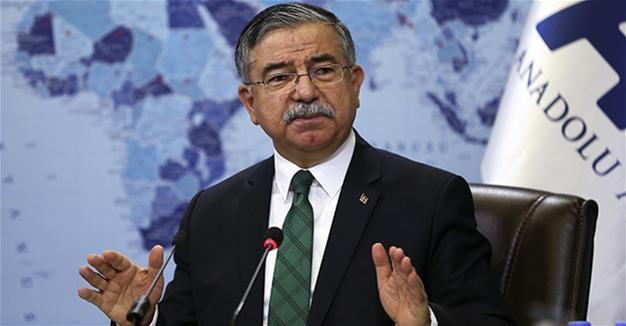Turkey to get new religious class curriculum in line with Euro court rulings
ANKARA

AA photo
Compulsory religion classes in Turkish schools will be taught in such a way to approach all religions equally while an approach that championed Sunni Islam will reportedly be eliminated in accordance with European Court of Human Rights (ECHR) rulings, Education Minister İsmet Yılmaz has said.
Introducing the new curriculum to be adopted for religion classes taught in middle and high schools, Yılmaz detailed the new format of the lesson for cabinet ministers, daily Habertürk reported.
According to the curriculum, the changes are based on an ECHR ruling that said it was a violation of the freedom of belief for a state to inculcate one religion even if it is the belief that the majority of that country follows.
The main change in the curriculum will consist of the removal of the phrase “adopting a religion.” For example, instead of “our religion,” the phrase “Islamic religion” will be used. Likewise, “our prophet” will be replaced with “Prophet Muhammed” and “our belief” will be replaced with “Islamic belief.”
Regarding the issue of Alevism and Bektashism, the new program aims to extend the coverage of beliefs and teach the concepts of the cemevi, the conducting of a cem and the Muharrem fast in line with the results of a joint commission formed with some Alevi religious leaders.
In the current curriculum, Alevism and Bektashism receive limited coverage in textbooks under the unit of “Sufi Interpretations of Islam.” Alevis, who make up at least 10 percent of the Turkish population by most estimates, are widely seen to espouse a liberal version of Islam.
In 2014, the ECHR concluded a case opened by 14 Turkish citizens against the content of compulsory religion classes, ruling that teaching more about Sunni Islam constituted “brainwashing” and that the class was pushing Alevi students toward a clash between their values and their schools.
The rest of the education curriculum has also been going through an overhaul following an initiative of the Education Ministry. Draft programs for all school levels, including elementary, middle and high school, have been prepared and submitted for review and recommendations from the public. The public’s input, however, was not solicited for the religious classes.
